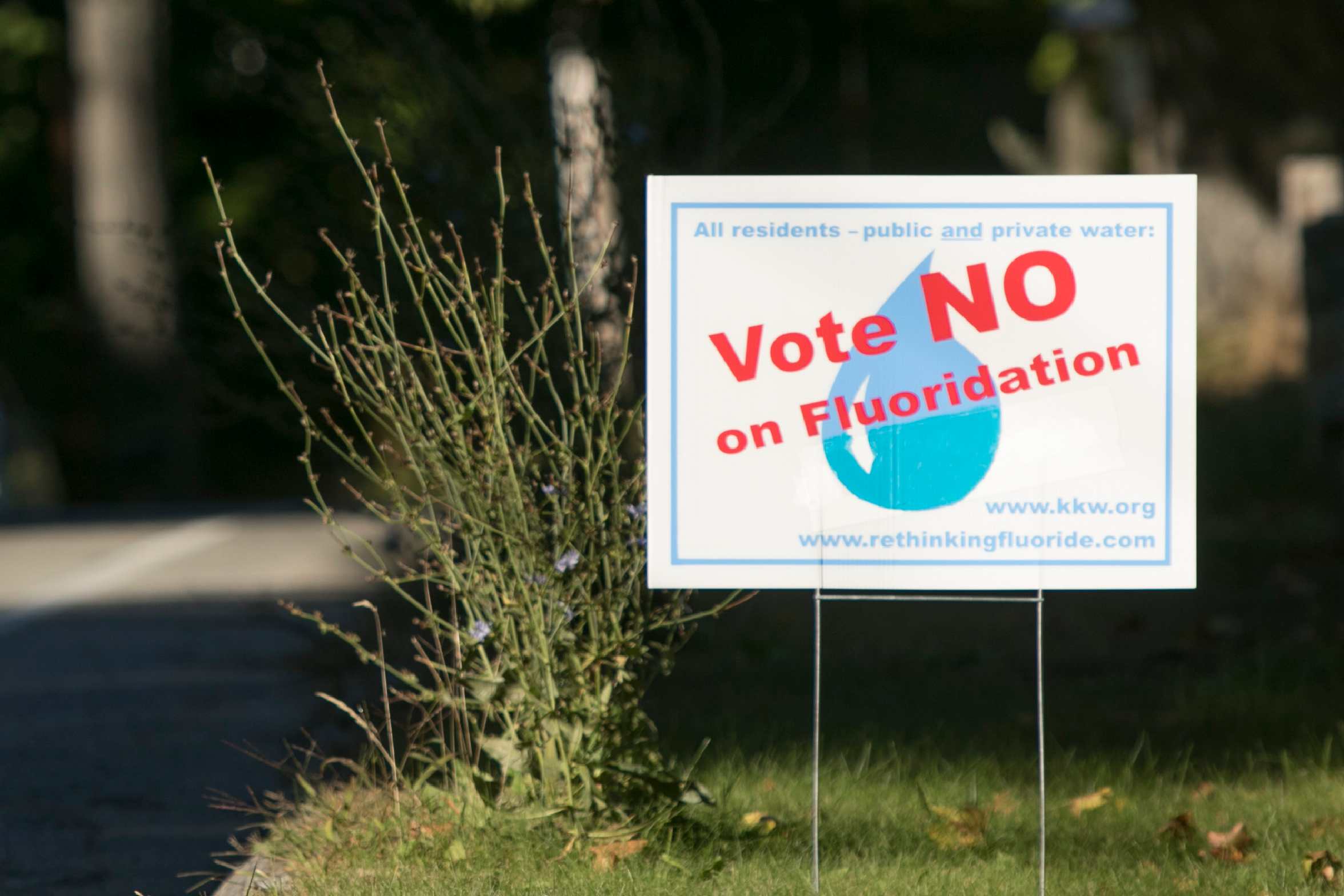…
It is a scenario playing out nationwide. From Oregon to Pennsylvania, hundreds of communities have in recent years either stopped adding fluoride to their water supplies or voted to prevent its addition. Supporters of such bans argue that people should be given the freedom of choice. The broad availability of over-the-counter dental products containing the mineral makes it no longer necessary to add to public water supplies, they say. The Centers for Disease Control and Prevention says that while store-bought products reduce tooth decay, the greatest protection comes when they are used in combination with water fluoridation.
The outcome of an ongoing federal case in California could force the Environmental Protection Agency to create a rule regulating or banning the use of fluoride in drinking water nationwide. In the meantime, the trend is raising alarm bells for public health researchers who worry that, much like vaccines, fluoride may have become a victim of its own success.
The CDC maintains that community water fluoridation is not only safe and effective but also yields significant cost savings in dental treatment. Public health officials say removing fluoride could be particularly harmful to low-income families — for whom drinking water may be the only source of preventive dental care.
“If you have to go out and get care on your own, it’s a whole different ballgame,” said Myron Allukian Jr., a dentist and past president of the American Public Health Association. Millions of people have lived with fluoridated water for years, “and we’ve had no major health problems,” he said. “It’s much easier to prevent a disease than to treat it.”
According to the anti-fluoride group Fluoride Action Network, since 2010, over 240 communities around the world have removed fluoride from their drinking water or decided not to add it.



but what if the water is naturally too high in fluoride. should we not use “drugs” to remove the flouride to bring it back to safe levels?
Should we remove the “calcium drug” that is in groundwater too? and trace iron? those are drugs the same way fluoride is, should we be removing them?
What about the chlorine we add to water to make sure water remains safe. thats a “drug”, isnt it? should we only ship raw water, and just accept some people will die?
Or should we put on our bigboy pants, and deal with reality?
If a natural body of water that is to be used as a water supply has high levels of a dangerous substance, yes, it should be removed. I’d say this is common sense, you don’t drink dirty water just because it’s “natural”. Also, it’s not necessary to use other drugs to remove fluoride. Either way, I’m saying adding drugs to municipal water supplies is not a good idea, I’m not making any claims about natural bodies of water.
Again, I’m saying adding a drug to municipal water supplies is problematic, not making claims about appropriateness of groundwater.
These are very different questions. If you suddenly removed chlorine from tap water around the U.S., massive numbers, perhaps tens of millions of people would likely die within days. If you suddenly removed the fluoride, rates of tooth decay would increase over the following years.
Chlorine added to water is not a drug meant to affect the the body of the consumer, it’s to prevent spread of water borne disease.
Ideally, no I don’t want chlorine added either – the need for chlorinated water is another one of the many problems we create for ourselves when we live at a grotesque overpopulation.
The reality is that we add a known neurotoxin to our tap water and drug our population to reduce tooth decay. Disprove this statement. Is fluoride not a known neurotoxin?
Its just an odd double standard you have, some chemicals are OK to be added, others are not. My thought process is very simple “fluoride is extremely safe, and everyone deserves the opportunity to live without cavities, lets level that playing field, the same as we do by chlorinating our water”
Fluoride is NOT a neurotoxin in the amounts the found in tap water. Everything is toxic in high enough quantities, and if you think we should ban something because in concentrate it is toxic, then we need to ban water too. If you think fluoride is a neurotoxin in the levels mandated by the FDA, please prove that.
You misundersand. No chemeicals added to water are OK, but chlorine is tolerable considering it saves millions of lives. Everything has a cost to benefit ratio. Adding chlorine to tap water has a huge benefit, fluoride does not.
How can you know the dose a person gets from a drug added to tap water? The fact is that dosing by tap water is one of the worst drug distribution methods possible.
This is silly and does not relate to my argument.